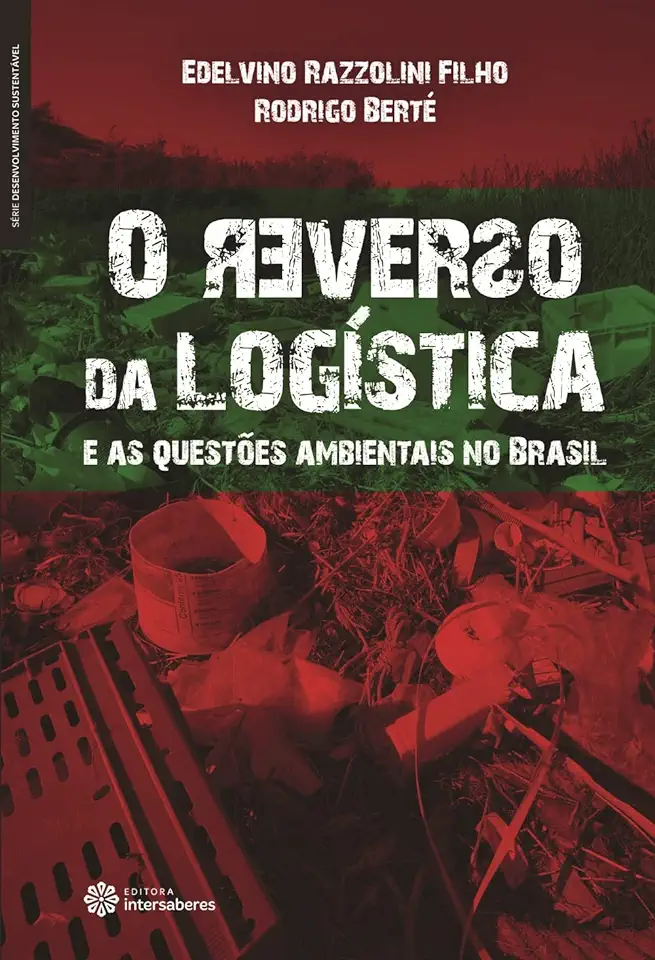
The Reverse Side of Logistics and Environmental Issues in Brazil - Edelvino Razzolini Filho / Rodrigo Berté
The Reverse Side of Logistics and Environmental Issues in Brazil
Introduction
In recent years, Brazil has experienced a significant increase in economic growth and industrialization. While this growth has brought many benefits, it has also led to a number of environmental challenges, including increased pollution, deforestation, and climate change.
The logistics sector is a major contributor to these environmental problems. The transportation of goods and materials requires a significant amount of energy, and the use of fossil fuels in the logistics sector is a major source of greenhouse gas emissions. In addition, the logistics sector also generates a large amount of waste, which can pollute the environment if not properly managed.
The Environmental Impact of Logistics in Brazil
The logistics sector in Brazil is a major contributor to environmental pollution. The transportation of goods and materials requires a significant amount of energy, and the use of fossil fuels in the logistics sector is a major source of greenhouse gas emissions. In addition, the logistics sector also generates a large amount of waste, which can pollute the environment if not properly managed.
Greenhouse Gas Emissions
The transportation of goods and materials is a major source of greenhouse gas emissions. In Brazil, the logistics sector is responsible for approximately 10% of total greenhouse gas emissions. This is due to the fact that the majority of goods and materials in Brazil are transported by truck, which is a very inefficient mode of transportation in terms of energy consumption.
Air Pollution
The logistics sector is also a major contributor to air pollution. The use of diesel fuel in trucks and other vehicles emits a number of pollutants, including particulate matter, nitrogen oxides, and sulfur oxides. These pollutants can cause a variety of health problems, including respiratory problems, heart disease, and cancer.
Water Pollution
The logistics sector can also pollute water resources. The runoff from parking lots and loading docks can contain pollutants such as oil, grease, and heavy metals. These pollutants can contaminate waterways and harm aquatic life.
Deforestation
The logistics sector can also contribute to deforestation. The construction of roads and warehouses can require the clearing of forests. This can lead to the loss of habitat for wildlife, as well as the release of carbon dioxide into the atmosphere.
The Social Impact of Logistics in Brazil
The logistics sector in Brazil also has a number of negative social impacts. These impacts include:
Traffic Congestion
The logistics sector is a major contributor to traffic congestion in Brazil. The large number of trucks on the roads can slow down traffic and make it difficult for people to get around.
Noise Pollution
The logistics sector can also generate a lot of noise pollution. The noise from trucks and other vehicles can be disruptive to people who live and work near major transportation routes.
Accidents
The logistics sector is also a major contributor to accidents. Trucks are involved in a significant number of accidents, which can cause injuries and fatalities.
The Need for Sustainable Logistics
The environmental and social impacts of the logistics sector in Brazil are significant. There is a need for sustainable logistics practices to reduce these impacts. Sustainable logistics practices include:
Reducing Greenhouse Gas Emissions
The logistics sector can reduce greenhouse gas emissions by using more efficient modes of transportation, such as rail and water. It can also use alternative fuels, such as biofuels and electric power.
Reducing Air Pollution
The logistics sector can reduce air pollution by using cleaner fuels, such as natural gas and propane. It can also use pollution control devices, such as catalytic converters and particulate filters.
Reducing Water Pollution
The logistics sector can reduce water pollution by managing runoff from parking lots and loading docks. It can also use water treatment plants to clean wastewater.
Reducing Deforestation
The logistics sector can reduce deforestation by using more efficient transportation routes. It can also work with landowners to protect forests.
Improving Traffic Congestion
The logistics sector can improve traffic congestion by using more efficient transportation routes. It can also work with governments to improve infrastructure.
Reducing Noise Pollution
The logistics sector can reduce noise pollution by using quieter vehicles. It can also use noise barriers to block out noise.
Reducing Accidents
The logistics sector can reduce accidents by using safer vehicles. It can also train drivers and implement safety procedures.
Conclusion
The logistics sector in Brazil has a significant impact on the environment and society. There is a need for sustainable logistics practices to reduce these impacts. By adopting sustainable logistics practices, the logistics sector can help to create a more sustainable future for Brazil.